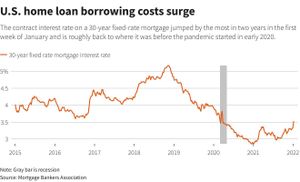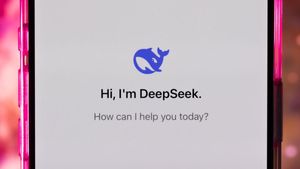TikTok’s Rising Star and Industry Response
A brief blackout on January 18, 2025, thrust TikTok back to the forefront of social media discussions. The short-form video platform's outage left over 150 million American users scrambling for answers, as they were met with messages explaining the service’s unavailability due to recent legislative actions.
TikTok's message read, "Sorry, TikTok isn’t available right now. A law banning TikTok has been enacted in the U.S. Unfortunately, we can’t use TikTok for now.” By the next day, the service resumed with TikTok thanking then-President-elect Trump for his anticipated assistance. This episode echoes the broader issue of national security concerns underlying the ban discussions, which date as far back as 2020.
While TikTok bounced back quickly, the tension surrounding its future is palpable, especially as the U.S. Congress passed legislation restricting American companies from collaborating with TikTok's China-based parent company, ByteDance Ltd., without divestment. Opinions among users are mixed. A recent survey conducted by intelligent.com revealed 41% of college students oppose any ban on the platform, indicating its deep cultural roots among younger demographics.
Students shared their thoughts on the potential ban, with 20-year-old Javier Moreno, studying Mechanical Engineering, noting, "Small businesses use it; many people benefit from TikTok to actually make money." This sentiment is echoed by fellow student Jorge Rodriguez, who expressed confusion about the recent messaging from TikTok praising Trump amid security concerns, calling it vague and unprofessional.
Concerns voiced by another student, 24-year-old Jennifer Lara, center around the app facing undue scrutiny simply due to its Chinese origins. "I don’t believe the spy conspiracy; I’ve learned so much more on TikTok than on other apps," said Lara. On the other hand, CSULB lecturer Scott Moss, though uncertain about the outright ban, reflected on the gravity of TikTok’s data privacy issues, particularly due to its origins, stating, "There’s fear China will be able to influence American opinion or thought" through the app's popularity.
At the same time, Meta, the company behind Facebook and Instagram, grapples with reestablishing its influence amid TikTok's rise. CEO Mark Zuckerberg has acknowledged his company’s slow reaction to TikTok’s burgeoning prominence, originally mischaracterizing it as simply another video platform akin to YouTube. While discussing Meta’s strategy, Zuckerberg reflected, "When I look back on TikTok, I think part of the reason we were slow to it is because we didn’t think it was social.” This miscalculation allowed TikTok to prosper and present significant competition as Meta now engages frantically to win back its user base.
To encourage content creation and retention on its platforms, Meta has reportedly offered influencers up to $30,000 to help build its new platform, Threads, and promote engagement on Instagram’s Reels. This strategy aims to lure TikTok users, especially as TikTok continues facing scrutiny from legislators and potential limitations on its operations. "If we can’t build Facebook and [the] next platform at the same time, then, like, eventually game over," Zuckerberg remarked, emphasizing the pressing need for Meta to innovate without losing ground to competitors.
The success of video-first platforms like TikTok has reshaped social media engagement, requiring brands and marketers to adapt rapidly due to shifting user preferences. "Social media strategies are being reshaped by the rapid rise of video-first platforms and shifting user demographics," noted Juan Pablo Tejela, CEO and Co-Founder of Metricool, reinforcing the need for platforms to cater to their audiences effectively.
Interestingly, the 2025 Social Media Report revealed TikTok leads with viewer engagement, having recorded significant increases over the previous year, which signals enduring popularity and influence across generational divides.
Whether TikTok can continue to thrive amid the pressures of regulatory scrutiny remains to be seen. The platform has built not just engagement but also community connection, making any potential separation or ban deeply consequential. Current commentary points toward regulated solutions, with cautious optimism as TikTok navigates uncharted territory.
Meta’s future, on the other hand, appears tethered to its capacity to regain lost ground through innovative strategies and enhanced engagement, marking the start of what may be new battles for social media supremacy.



